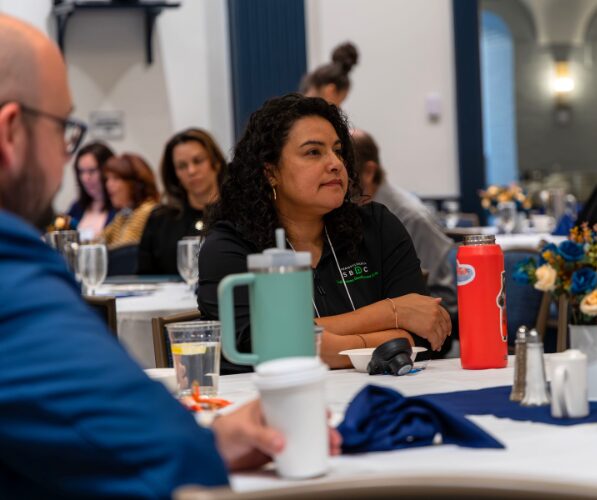Success Story
Penn State research-based startup Lightscline completes NSF I-Corps National Teams program
The amount of raw data generated by devices is increasing at an exponential rate. New units of measurement were recently created to account for this overflow of data – but current analysis tools are not designed to handle this scale of data.
Through his software startup Lightscline, Penn State industrial engineering Ph.D. candidate and Diefenderfer Graduate Fellow in Entrepreneurship Ankur Verma is developing a patent-pending AI-based software that will significantly reduce the amount of data collected by devices such as drones and satellites. The software enables devices to collect 2-10x fewer data points by only collecting the information companies need for decision-making purposes.
“In my Ph.D. research on sensor data analysis, I was facing issues in dealing with large data volumes,” Verma said. “We thought that this would be a problem in many industries in the near future. To develop a solution, I took inspiration from the efficiency of the human perception system. We deal with swaths of sensory inputs on a daily basis, and yet we are able to automatically filter out what is not important by using mechanisms such as selective attention. Because humans are able to do this data filtering very efficiently, I thought we should be able to train machines to do so, since machines are much better at learning patterns than humans.”
To grow Lightscline, Verma has participated in Happy Valley LaunchBox powered by PNC Bank’s Idea Testlab as well as an NSF I-Corps regional program. He has also worked closely with Penn State’s Office of Technology Management (OTM).
This past fall, Verma participated in the NSF I-Corps National Teams program — an immersive, entrepreneurial training program that facilitates the transformation of invention to impact for participating teams nationwide. The program consisted of seven weeks of intensive virtual startup training, in which participating teams must complete 100 or more customer discovery interviews.
Verma participated in the program with Soundar Kumara, the Allen E., and Allen M., Pearce Professor of industrial engineering at Penn State, as well as entrepreneurship instructor Richard Weyer and serial entrepreneur Fred Rogers.
“Ankur’s team performed strongly at a Regional I-Corps Short Course, interviewing over 20 individuals in just a few weeks; that led to a discussion about how the I-Corps National Teams Program would be a great next step,” said Derek Gross, program manager for the NSF I-Corps program at Penn State. “The I-Corps National Program focuses on real-world, immersive instruction, not how to write a business plan; Ankur as well as his Technical Lead, Professor Soundar Kumara, took advantage of the opportunity to interview over 100 experts as well as potential customers in the digital transformation and Industrial Big Data spaces. This led to a more refined understanding of the market they were looking to enter.”
As part of the National Teams program, Verma attended four different conferences to speak to potential customers. He learned through this process that his primary target customers are people in the CCTV monitoring, drone, and satellite data collection industries, as they are the most likely to be facing the data overflow problem.
“The National I-Corps program taught me how to communicate my technology’s value proposition for the customer without going into details of the technology itself,” Verma said. “I want to recommend this program specifically to graduate students in the deep tech space. This experience makes you think about and explain things in a very simple way, however complicated your technology may be. Knowing how to break something very complex down into very simple components only happens when you try to explain it to potential customers over and over again, and it’s an essential skill.”
Lightscline is now looking to secure federal research grant funding through NSF, and will be looking to raise funding from investors soon after to continue to build out the software.
Visit this website to learn more about NSF I-Corps programs available at Penn State.
About NSF I-Corps
The NSF I-Corps program uses experiential education to help researchers gain valuable insight into entrepreneurship, starting a business or industry requirements and challenges. I-Corps enables the transformation of invention to impact. The curriculum integrates scientific inquiry and industrial discovery in an inclusive, data-driven culture driven by rigor, relevance, and evidence. Through I-Corps training, researchers can reduce the time to translate a promising idea from the laboratory to the marketplace. Penn State University is part of the NSF I-Corps Mid-Atlantic Hub, a network of universities, NSF-funded researchers, established entrepreneurs, local and regional entrepreneurial communities, and other federal agencies. Hubs work collaboratively to build and sustain a diverse and inclusive innovation ecosystem throughout the United States.






